by Swaminathan S Anklesaria Aiyar
Courtesy: Times of India dated August 18th, 2008
On August 15, India celebrated independence from the British Raj. But Kashmiris staged a bandh demanding independence from India. A day symbolising the end of colonialism in India became a day symbolising Indian colonialism in the Valley. As a liberal, i dislike ruling people against their will. True, nation-building is a difficult and complex exercise, and initial resistance can give way to the integration of regional aspirations into a larger national identity — the end of Tamil secessionism was a classical example of this. I was once hopeful of Kashmir's integration, but after six decades of effort, Kashmiri alienation looks greater than ever. India seeks to integrate with Kashmir, not rule it colonially. Yet, the parallels between British rule in India and Indian rule in Kashmir have become too close for my comfort. Many Indians say that Kashmir legally became an integral part of India when the maharaja of the state signed the instrument of accession. Alas, such legalisms become irrelevant when ground realities change. Indian kings and princes, including the Mughals, acceded to the British Raj. The documents they signed became irrelevant when Indians launched an independence movement. The British insisted for a long time that India was an integral part of their Empire, the jewel in its crown, and would never be given up. Imperialist Blimps remained in denial for decades. I fear we are in similar denial on Kashmir. The politically correct story of the maharaja's accession ignores a devastating parallel event. Just as Kashmir had a Hindu maharaja ruling over a Muslim majority, Junagadh had a Muslim nawab ruling over a Hindu majority. The Hindu maharaja acceded to India, and the Muslim nawab to Pakistan. But while India claimed that the Kashmiri accession to India was sacred, it did not accept Junagadh's accession to Pakistan. India sent troops into Junagadh, just as Pakistan sent troops into Kashmir. The difference was that Pakistan lacked the military means to intervene in Junagadh, while India was able to send troops into Srinagar. The Junagadh nawab fled to Pakistan, whereas the Kashmir maharaja sat tight. India's double standard on Junagadh and Kashmir was breathtaking. Do you think the people of Junagadh would have integrated with Pakistan after six decades of genuine Pakistani effort? No? Then can you really be confident that Kashmiris will stop demanding azaadi and integrate with India? The British came to India uninvited. By contrast, Sheikh Abdullah, the most popular politician in Kashmir, supported accession to India subject to ratification by a plebiscite. But his heart lay in independence for Kashmir, and he soon began manoeuvering towards that end. He was jailed by Nehru, who then declared Kashmir's accession was final and no longer required ratification by a plebiscite. The fact that Kashmir had a Muslim majority was held to be irrelevant, since India was a secular country empowering citizens through democracy.
Alas, democracy in Kashmir has been a farce for most of six decades. The rot began with Sheikh Abdullah in 1951: he rejected the nomination papers of almost all opponents, and so won 73 of the 75 seats unopposed! Nehru was complicit in this sabotage of democracy. Subsequent state elections were also rigged in favour of leaders nominated by New Delhi. Only in 1977 was the first fair election held, and was won by the Sheikh. But he died after a few years, and rigging returned in the 1988 election. That sparked the separatist uprising which continues to gather strength today. Many Indians point to long episodes of peace in the Valley and say the separatists are just a noisy minority. But the Raj also had long quiet periods between Gandhian agitations, which involved just a few lakhs of India's 500 million people. One lakh people joined the Quit India movement of 1942, but 25 lakh others joined the British Indian army to fight for the Empire's glory. Blimps cited this as evidence that most Indians simply wanted jobs and a decent life. The Raj built the biggest railway and canal networks in the world. It said most Indians were satisfied with economic development, and that independence was demanded by a noisy minority. This is uncomfortably similar to the official Indian response to the Kashmiri demand for azaadi. Let me not exaggerate. Indian rule in Kashmir is not classical colonialism. India has pumped vast sums into Kashmir, not extracted revenue as the Raj did. Kashmir was among the poorest states during the Raj, but now has the lowest poverty rate in India. It enjoys wide civil rights that the Raj never gave. Some elections — 1977, 1983 and 2002 — were perfectly fair. India has sought integration with Kashmir, not colonial rule. But Kashmiris nevertheless demand azaadi. And ruling over those who resent it so strongly for so long is quasi-colonialism, regardless of our intentions. We promised Kashmiris a plebiscite six decades ago. Let us hold one now, and give them three choices: independence, union with Pakistan, and union with India. Almost certainly the Valley will opt for independence. Jammu will opt to stay with India, and probably Ladakh too. Let Kashmiris decide the outcome, not the politicians and armies of India and Pakistan.
Thursday, August 28, 2008
Subscribe to:
Post Comments (Atom)










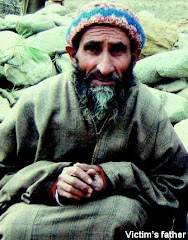



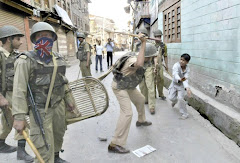


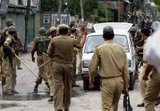



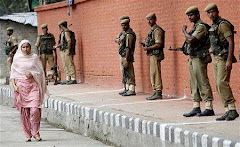














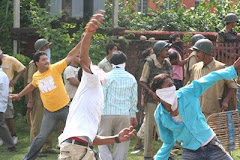

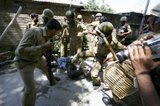












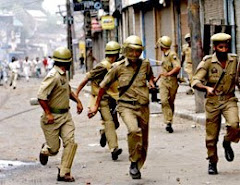
India has to go out of Kashmir any how.
ReplyDelete